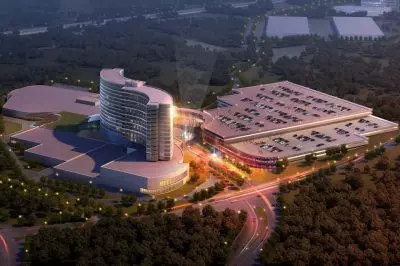 Despite the Massachusetts gambling regulatory body has postponed a proposal to look for a suitable company to build a resort casino in the Southeastern part of the state, the members of the Gaming Commission said they want to know details about the exact status of the Mashpee Wampanoag tribe’s federal litigation.
Despite the Massachusetts gambling regulatory body has postponed a proposal to look for a suitable company to build a resort casino in the Southeastern part of the state, the members of the Gaming Commission said they want to know details about the exact status of the Mashpee Wampanoag tribe’s federal litigation.
The commissioners cited the very competitive landscape in the Northeast part of the state as one of the main reasons for not proceeding with filing a request for a casino operators’ licensing offer. For now, the prospect that Massachusetts’ gambling regulatory body will award the last one of the three licenses for a full-service casino venue in the near future remains uncertain.
Considering the fact that the revenues at the Springfield- and Everett-based resort casinos have seen their venues decline lately, and the long-lasting disagreement over proposed Native American gambling services on Martha’s Vineyard and in Taunton, the commissioners do not seem willing to rush into complicating the situation even more.
Yesterday, the Massachusetts Gaming Commission agreed that its executive director and the legal team would join forces to get additional information for the ongoing legal battle of the tribe, which is trying to secure a parcel as part of the tribe trust land. In fact, the President Obama administration gave permission to the Mashpee Wampanoag tribe to take control of the land but that decision was later overturned by the administration of President Trump.
Mashpee Wampanoag Tribe Does Not Give Up the Commercial Casino Project Despite Legal and Regulatory Difficulties
 The Mashpee Wampanoag tribe has revealed its willingness to construct its $1-billion First Light Resort and Casino project in Taunton, using some tribal land. According to expectations, such a casino and entertainment project would have a massive impact on the commercial casino industry in the state of Massachusetts.
The Mashpee Wampanoag tribe has revealed its willingness to construct its $1-billion First Light Resort and Casino project in Taunton, using some tribal land. According to expectations, such a casino and entertainment project would have a massive impact on the commercial casino industry in the state of Massachusetts.
Currently, the legal department of the Native American nation has been dealing with the litigation related to the complicated matter. Yesterday, the Chairwoman of the tribe, Cathy Judd-Stein, explained that in her opinion, the legal issues of the tribe had to be made formal, as it has been an important part of the evaluation and discussion of the overall Region C.
Region C includes the counties of Plymouth, Bristol, Nantucket, Barnstable and Dukes. Back in 2016, when a possibility for a Taunton casino emerged, local regulators turned down a proposal for a Brockton-based commercial casino. Later in 2016, that rejection was annulled by the decision of President Obama administration to provide the Mashpee Wampanoag tribe with the chance to add a 320-acre piece of land to its reservation land, where it planned to establish a resort casino. This decision, however, got officially reversed by President Trump administration in 2018.
Since then, the Mashpee Wampanoag tribe has been trying to legally secure a trust status for the land and has been involved in a federal court battle. For now, the Native American nation has not given up the battle to build a commercial casino in Taunton, in spite of various legal and regulatory setbacks. State Senator Marc R. Pacheco has also urged the Massachusetts Gaming Commission to carefully review the questions that have emerged around the proposed tribal projects in the area.
In any case, the legal battle of the tribe has shaken the gambling sector in the region and if allowed, would be a major player there. According to Enrique Zuniga, a Massachusetts commissioner, conducting an economic analysis of the gambling market in Region C before making a final decision on the third casino resort license would be an important part of the Gaming Commission’s work.